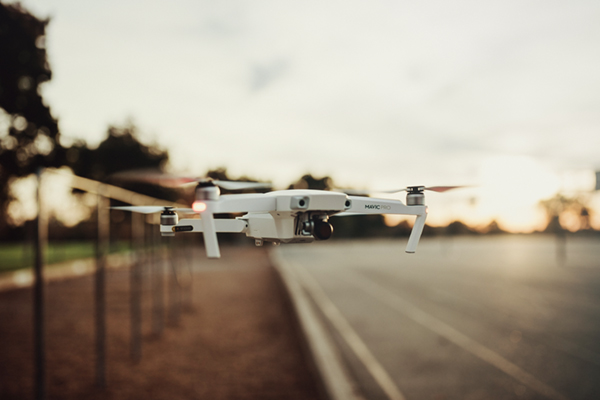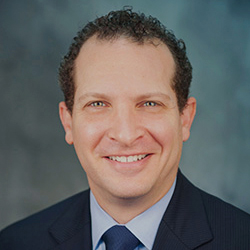
Hobbyist and commercial drone sales are projected to rise from 2.5 million in 2016 to 7 million in 2020, according to the Federal Aviation Administration. This increase raises a number of legal issues in areas of safety, security and privacy. Timothy Ravich, assistant professor of legal studies at UCF, recently published a report for the National Academy of Sciences, Engineering, and Medicine examining operations of unmanned aerial systems — or drones — and airports.
 Timothy Ravich, assistant professor of legal studies, published “Evolving Law on Airport Implications by Unmanned Aerial System” for the National Academy of Sciences, Engineering, and Medicine.
Timothy Ravich, assistant professor of legal studies, published “Evolving Law on Airport Implications by Unmanned Aerial System” for the National Academy of Sciences, Engineering, and Medicine.Through the Transportation Research Board’s Airport Cooperative Research Program, Ravich’s report, “Evolving Law on Airport Implications by Unmanned Aerial System” provides airport sponsors guidance to enhance their understanding of the basic legal and operational issues presented by civilian-operated drones, and evaluates best practices for managing these issues.
The report includes a background on drone uses, applications, regulations and definitions, leading to operations within the National Airspace System, issues of federalism as it relates to local and state laws, tort law implications, operations at airports and best practices for the nation’s more than 5,000 airport operators.
Learn more about Ravich’s research available at nap.edu/catalog/24932/evolving-law-on-airport-implications-by-unmanned-aerial-systems.
The Department of Legal Studies at the University of Central Florida provides excellence in teaching, research and service related to the law and legal community. Dedicated to its students, the faculty delivers outstanding instruction at the undergraduate level, incorporating learning, service and inquiry. By actively developing meaningful partnerships, it provides exemplary service to the university and the broader professional and academic community.